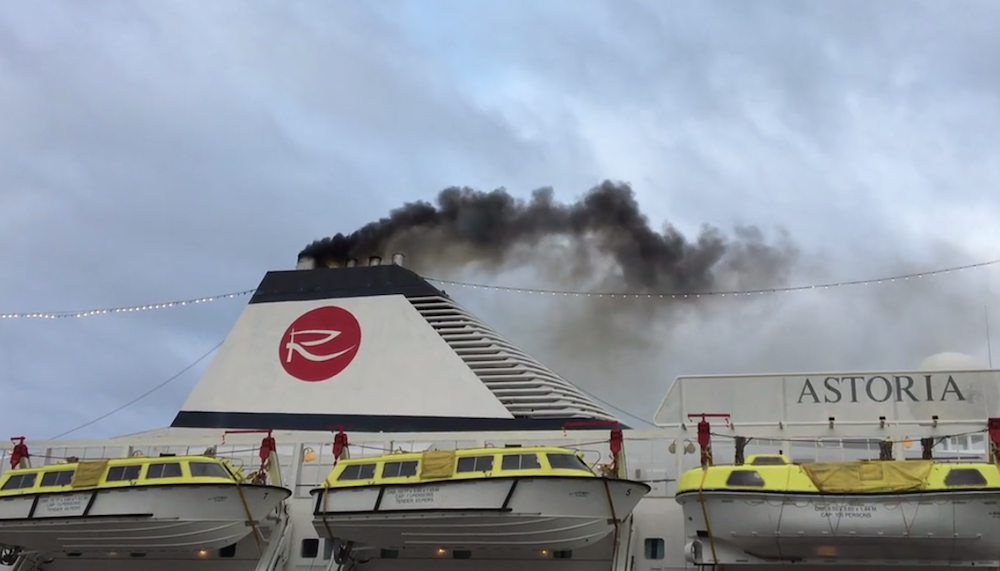Iceland’s new shipping-exhaust rules come close to a ban on the ‘filthiest’ type of fuel
Tougher rules limit emissions from heavy fuel oils but don’t prevent ships from using them.

Iceland has issued new rules that will see the country meet the strictest international guidelines for sulfur in the exhaust from ships travelling in its territorial waters.
The changes, adopted on December 10, come into effect on January 1. They require that fuel used by ships sailing within 12 nautical miles of its coast contain no more than 0.1 percent sulfur, a reduction from the current international limit of 3.5 percent. Ships sailing outside coastal waters but within country’s pollution prevention zone may use fuel with a sulfur content of 0.5 percent.
Only about 20 percent of the maritime fuel sold in Iceland in 2016 was heavy fuel oil, and most of it with a lower sulfur content than the international average. But, worldwide, some 70 percent of fuel used by ships is classified as a heavy fuel oil, and discussions about whether to enforce tougher emissions restrictions have intensified as the number of cruise ships calling on Iceland in recent years has risen.
Iceland was obliged to lower its limit to at least 0.5 percent by January after it ratified changes to guidelines for maritime air pollution worked out by the International Maritime Organization, a UN body that earlier this year was admitted as an Arctic Council observer.
[Nunavut Inuit group joins call for Arctic ban on heavy fuel oil]
In adopting a 0.1 percent limit, Iceland will require ships to meet the same strict requirements as those in place in the emission-control areas identified by the IMO as being at particular risk of air pollution from ships.
Iceland hopes the change will reduce coastal air pollution and help the country meet its goals for addressing global warming.
Guðmundur Ingi Guðbrandsson, the environment and natural resources minister, described the regulation as one of the world’s toughest, and said it was intended to force ships into using lighter, cleaner types of fuels, and to speed development of non-carbon based forms of fuel.
“I hope this will happen in the near future,” Guðbrandsson said, “but heavy fuel oil is the filthiest, therefore it is extremely important to stop its use.”
[A potential Arctic ban on heavy fuel oil gains momentum]
Heavy fuel oils are a class of petroleum product made from the tar-like substance left over at the end of the refining process, after lighter, more expensive products like kerosene and gasoline have been removed. Because they are inexpensive, they are the most widely used form of maritime fuel, but the particles they give off when burned are associated with human health issues and climate change.
The IMO is working on measures to reduce sulfur emissions from shipping fuel by promoting cleaner fuel and measures like equipment that can remove pollutants from ship exhaust.
The Icelandic rules will permit ships to use heavy fuel oils if their emissions systems are equipped with scrubbing equipment, but environmentalists say focusing solely on exhaust overlooks the other danger posed by heavy fuel oils.
In the event of a spill, heavy fuel oils are harder to clean up than lighter fuels, particularly in cold environments, and they do more damage to the environment.
A ban on heavy fuel oils was put in place in the Antarctic in 2011. A similar ban that was implemented in parts of the waters around Svalbard in 2007 has since been expanded twice. Efforts are underway to ban it entirely from the Arctic, but Icelandic and international groups said the Icelandic government should have acted unilaterally to impose a ban of its own.